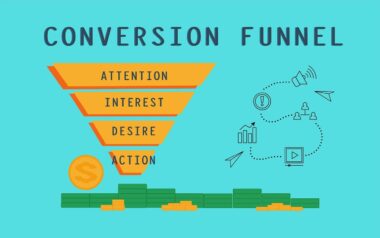The Role of AI in Modern Lead Scoring and Grading Techniques
In the evolving landscape of Customer Relationship Management (CRM), artificial intelligence is transforming how businesses approach lead scoring and grading. Lead scoring is a systematic process for ranking leads based on their potential to convert into customers. The use of AI in this context has revolutionized traditional practices, allowing organizations to leverage vast amounts of customer data. AI algorithms analyze these data points, producing accurate and insightful scores that prioritize leads. As customer behaviors shift and data becomes increasingly complex, a robust AI framework becomes essential. Companies employing AI tools can better anticipate customer needs, providing tailored communication strategies to engage prospects effectively. Increased automation means that sales teams can focus more on high-priority leads instead of sifting through unqualified candidates. Furthermore, as these AI systems learn from historical data, they constantly improve, refining their accuracy over time. This continuous enhancement ensures firms can remain competitive in their markets. By embracing AI technology, executives position themselves strategically to adapt and thrive amid the rapid advances in lead generation practices.
One key advantage of AI-driven lead scoring is its ability to analyze extensive datasets at high speeds. Traditional lead scoring methods often rely on human intuition and simplified criteria, which can be limiting. By contrast, AI incorporates numerous variables, including demographic information, online behavior, and engagement metrics, creating a sophisticated scoring model. For instance, an AI system can track how often a lead visits a website, the content they interact with, and even social media activity. This nuanced understanding allows for more relevant interactions, which increases the likelihood of conversion. Moreover, AI has the capability to predict future behavior based on past actions, providing invaluable insights to sales teams. As a result, leads receive personalized experiences tailored to their preferences. Businesses that harness the power of AI in lead scoring can not only improve the efficiency of their sales processes but also enhance overall customer satisfaction. These high-quality, targeted interactions foster stronger relationships between businesses and their customers. In a landscape where competition is fierce, effective lead scoring powered by AI can be the difference between success and failure.
Integrating AI in CRM Platforms
As companies look to adopt AI-powered lead scoring, integration within existing CRM platforms is essential. Most modern CRM systems now include built-in AI functionalities, enabling businesses to streamline their lead scoring processes. Integrating AI enhances the CRM’s capabilities, allowing for real-time data analysis and improved forecasting. The automated scoring systems can automatically assign scores based on customized criteria set by the organization. This level of automation alleviates the burden on sales teams, allowing them to concentrate on building relationships rather than manually analyzing leads. Many AI tools also incorporate machine learning algorithms, which adapt over time to improve accuracy continually. This adaptability ensures that the scoring system remains aligned with evolving market dynamics and customer preferences. Furthermore, CRM integration provides a holistic view of customer interactions, merging sales, marketing, and service data. With comprehensive insights, teams can collaborate more effectively, ensuring that every touchpoint is optimized. The result is not only a streamlined sales process but also a rich foundation for meaningful customer engagement.
Moreover, AI-driven lead scoring helps organizations detect patterns in customer behaviors that may not be immediately visible. For businesses, understanding these patterns is crucial for developing effective marketing strategies. By leveraging AI, organizations can identify high-value leads and allocate resources efficiently. Predictive analytics plays a significant role in this process, as AI can forecast which leads are more likely to convert. This predictive capacity informs both marketing campaigns and resource allocation for sales teams. Additionally, AI enhances the precision of targeting efforts—companies can tailor their offerings based on specific characteristics identified in high-scoring leads. As a result, the cost of acquiring new customers can decrease significantly while conversion rates get boosted. Furthermore, by analyzing the data over time, organizations can gain insights into customer lifecycle stages, improving retention rates. AI not only drives efficiency in acquiring customers but also cultivates a deeper understanding of maintaining existing relationships. This dual approach positions companies for sustained growth and greater customer loyalty in their respective markets.
The Importance of Continuous Learning
Another critical aspect of AI in lead scoring is its capacity for continuous learning. AI systems are designed to evolve based on feedback and new information, continually refining their algorithms for scoring accuracy. This adaptability is vital since customer preferences and market trends are always changing. Continuous learning allows organizations to stay ahead of the curve by adjusting their strategies based on real-time data. Moreover, this capability is particularly important in industries with rapidly changing consumer behaviors. AI systems can quickly analyze incoming data, making iterative updates to lead scores while minimizing manual input. Consequently, businesses benefit from an evolving scoring system that reflects current realities rather than static models. For sales teams, this means they can always engage with leads at the right moment, optimizing timing and outreach strategies. Additionally, by continuously improving attribution models, companies can better understand the efficacy of their marketing efforts. The result is enhanced performance, more engaged customers, and a multi-faceted understanding of the sales process.
Furthermore, organizations integrating AI into lead scoring can identify potential risks and opportunities much earlier in the sales process. For example, AI systems can flag leads that may have a declining interest over time, allowing sales teams to take proactive measures. By monitoring ongoing engagements, businesses can adjust their approach based on behavioral signals signaling disengagement. This proactive strategy helps companies retain leads that might have otherwise been lost. Additionally, AI can detect opportunities for cross-selling and upselling based on purchasing behavior and preferences. As AI analyzes these patterns, it provides actionable insights that sales teams can utilize to maximize each interaction’s effectiveness. Companies that cultivate a strong understanding of their leads become adept at not only converting customers but maintaining long-term relationships with them. With AI supporting lead scoring, organizations lay the groundwork for sustained loyalty, fostering connections that evolve as customer needs change. Ultimately, businesses equipped with AI tools are better prepared for unpredictable markets, ensuring continued relevance.
Future Trends in Lead Scoring
As technology continues to advance, the future of lead scoring driven by AI holds immense promise. We can anticipate greater integration of AI with other technologies, such as augmented and virtual reality, enhancing how businesses generate and score leads. For instance, AR could offer immersive customer experiences, effectively highlighting products and services. This approach would create deeper engagements, yielding higher-quality leads. Additionally, as AI continues to evolve, developments in natural language processing may enable more nuanced understanding of customer communications. Improved sentiment analysis could lead to the refinement of scoring algorithms, ensuring that even implicit signals are captured effectively. Moreover, the use of blockchain technology may revolutionize data security and management in lead scoring processes, enhancing data transparency and integrity. As these technologies come together, businesses will be empowered to innovate their lead generation strategies further, leveraging intelligent insights to refine their sales approaches dramatically. The capability to implement predictive lead scoring in diverse contexts will become increasingly crucial for organizations aiming to thrive in the digital age.
In conclusion, artificial intelligence plays a transformative role in modern lead scoring and grading techniques. By leveraging vast amounts of data and utilizing sophisticated algorithms, companies can not only enhance their sales processes but also build stronger relationships with customers. The continual evolution of AI technology ensures that businesses remain adaptive and responsive to market changes. As organizations strive for competitive advantages, the integration of AI is paramount. Not only does AI automate tedious tasks, but it also enables deeper insights into customer behaviors, preferences, and journey stages. Consequently, businesses equipped with AI-driven scoring systems are empowered to identify high-quality leads early, allocate resources more efficiently, and engage prospects effectively. By fostering personalized experiences, companies elevate customer satisfaction and loyalty, leading to long-term success. As we move forward, the excitement surrounding AI in CRM only continues to grow. With ongoing innovations on the horizon, the role of AI in lead scoring is poised to expand, shaping the future of sales and marketing strategies across various industries.





